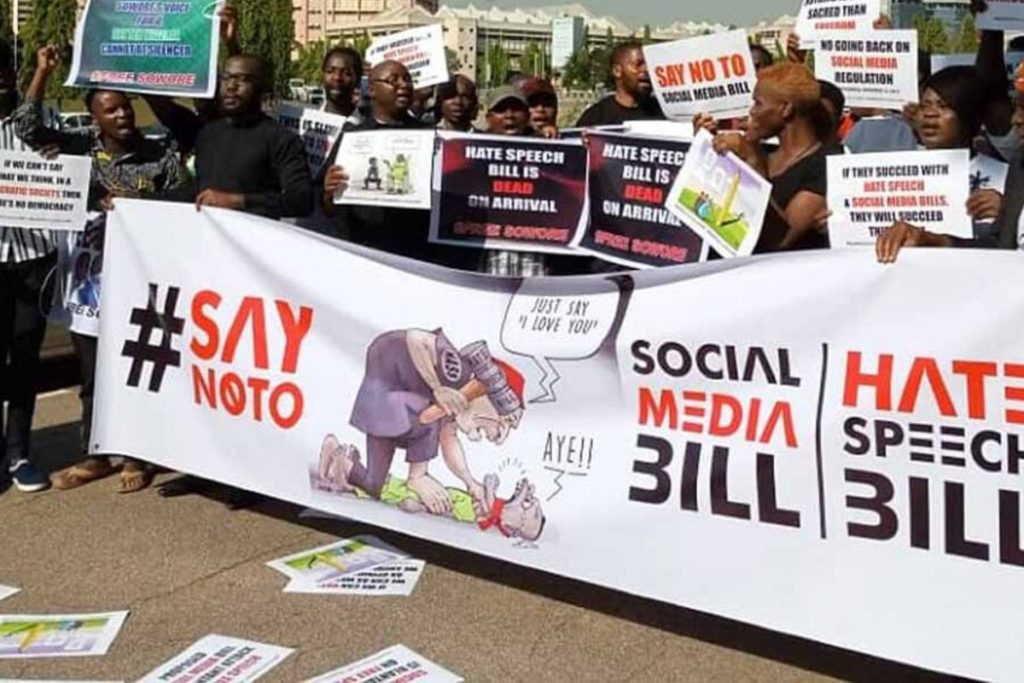Citizens of Nigeria and government organizations debated the proposed social media bill. This happened at the National Assembly on Monday, during the public hearing of the Bill, otherwise known as Protection from Internet Falsehood, Manipulations, and other Related Matters Bill, 2019.
Senator Mohammed Sani Musa who sponsored the Bill opined that it will protect against criminal and moral offenses online. He further stated that the Bill will draw the line between protecting national security and the freedom of expression online.
According to representatives of the Nigerian Army, the Bill would tackle the prevalence of fake news around military activities in the country.
Whereas some members of the Senate and representatives of the Nigerian Army argued for, many civilians and government organizations expressly opposed the motion.
See also: Newtown Partners & Imperial Launches $20m Logistics Startup Fund in Africa
On the other hand, many civil and government organizations termed it a piece of ‘unnecessary legislative overkill’. They believed that the existing laws in the country already caters to all that the Bill proposes. The Executive Vice Chairman of the Nigerian Communications Commission was also present to refute the Bill. “Certain provisions of the Bill could be used to violate citizen’s rights, free speech and potentially, our human rights”, said Prof. Umar Garba Danbatta, NCC Chairman.
He further retorted that the Bill gives too much power to the Nigerian Police Force to the extent of deciding what constitutes falsehood and the power to take necessary actions. Rather, he recommended that the Bill goes through a complete redraft to ensure it aligns with existing laws.
Osai Ojigho, the Country Director for Amnesty International Nigeria also joined the debate. He reminded the senate that Nigeria, being a signatory of international charters, promised not to intercept with the rights of citizens. He said that the Bill does not satisfy the basic requirements of the Nigerian Constitution to restrict the freedom of expression of citizens.
The Social Media Bill has passed the second reading. The public hearing was scheduled for the Senate committee to interact with members of the public. Peradventure, this debate would influence the decision of the members of the Senate to pass it into law.
More on TechGist Africa:
- Visa & Paga Partners to Drive Larger Payment Volumes for Both Companies
- IFC & Other Stakeholders Jointly Acquires TerraPay for $9.6 million
- AFDB to Setup Fourteen Agro Processing Zones Across Africa
- Huawei Takes 5G to Kenya through Partnership with Safaricom
- ICASA Publishes New Regulations to Guide Employment in South Africa ICT Sector
